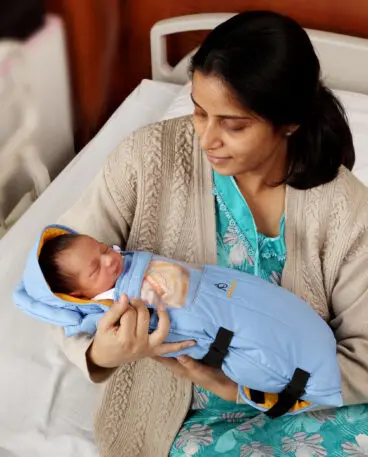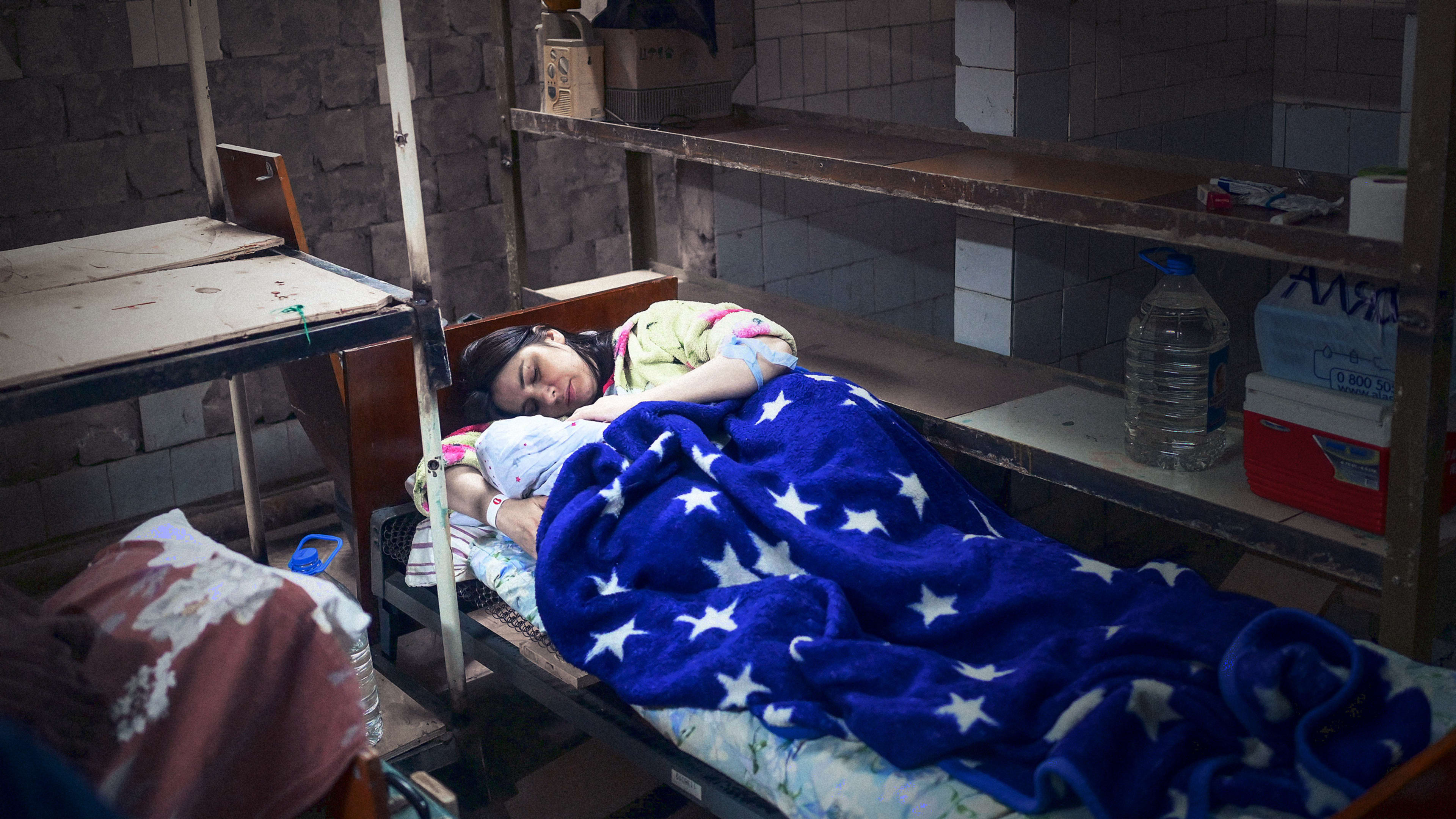At the Regional Perinatal Center in Kharkiv, Ukraine, women give birth in a newly made labor room set up in the hospital’s basement, sheltered from air raids. But not all children are able to shelter there. Premature babies require lifesaving equipment like incubators, which are housed aboveground in the children’s intensive care unit and cannot be moved. To provide these babies with critical care, nurses stay with them in that room aboveground, even during bombings.
Soon, though, UNICEF will receive a shipment of portable incubators that will let those nurses carry premature babies to the basement, while still providing them with the necessary warmth that their underweight bodies can’t yet produce. The incubators are from Embrace Global, a nonprofit that provides low-cost, transportable incubators that don’t need a constant supply of electricity to rural areas.

“These nurses are risking their lives staying with the babies so they can be in these incubators, meanwhile buildings are getting bombed all around them,” says Jane Chen, CEO and cofounder of Embrace Global.
Speaking to UNICEF, Iryna Kondratov, head of the perinatal center, specifically put out a plea for “transportable incubators for these babies who are in intensive care and whom we cannot, unfortunately, take to the basement, because they are critically dependent on this equipment.” Chen says that when she heard this, she thought Embrace’s incubators could be the solution, and began coordinating with UNICEF.
The first 150 portable incubators are on their way to Ukraine now. Embrace aims to donate 3,000 incubators total—a figure that UNICEF and the World Health Organization, another organization Embrace is in touch with on this effort, say they need—and currently has a GoFundMe to raise $300,000 to do so (with plans to up that goal to $600,000). Logistics company Flexport, which is organizing shipments of relief goods to refugee sites across Eastern Europe, is covering the cost of delivery for Embrace.
The Embrace incubator sets, which include a heater that can rewarm those wax bags in about 30 minutes, cost about $200 each to produce.
The Regional Perinatal Center in Kharkiv isn’t the only healthcare facility that’s in need of this lifesaving technology. Due to the stress and shock of the conflict, women across Ukraine are going into labor early, and the rate of premature babies has skyrocketed—doubling or even tripling, according to recent estimates. Women are giving birth in the basements of hospitals and in bomb shelters. More than 1,000 babies are born in Ukraine per day, and experts have said that of those, around 100 will need some neonatal intensive care.
“I’ve never seen in my 14 years of working on this just so many pieces in the press on the rise of premature babies,” Chen says. “We’ve seen this around the world, whenever there’s a disaster there is a sharp increase in the number of premature babies, but I’ve never seen so much coverage of this, which to me indicates the situation on the ground is really drastic.”
The incubators don’t need a trained medical professional to operate them, either. Embrace is working on translating an instructional video, but the product was designed, Chen says, for even illiterate people in rural areas of developing countries to use. How long they’re needed depends on the baby—depending on their weight, some may need the incubator for a few days, while others could rely on it for a few weeks.
“We know it’s critical to regulate the temperature of these preemies at birth,” Chen says. “If you don’t give proper care to them in the first few days, especially, they can grow up with severe health problems.”
Embrace grew out of a project Chen was involved in while at Stanford Business School in 2008, when she and her team were tasked with designing low-cost technology for people living on less than $1 a day.
The portable incubators cost less than 1% of a traditional incubator, and have been used across India and China, particularly in rural villages that are too far from hospitals for mothers to get to quickly with their newborns. Chen estimates that, to date, Embrace has saved 350,000 babies across 22 countries.
Recognize your brand’s excellence by applying to this year’s Brands That Matter Awards before the early-rate deadline, May 3.
